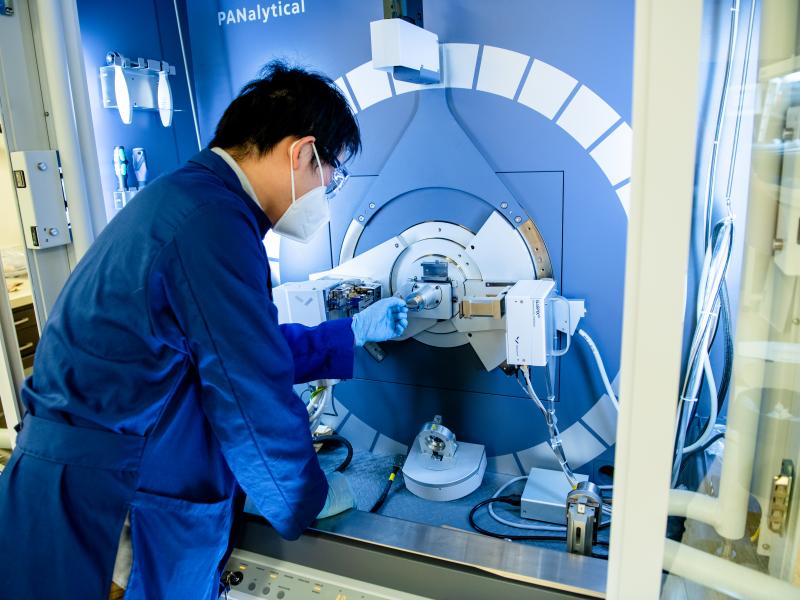
Battery Reliability Test Laboratory
Evaluating Energy Storage for the Electric Grid
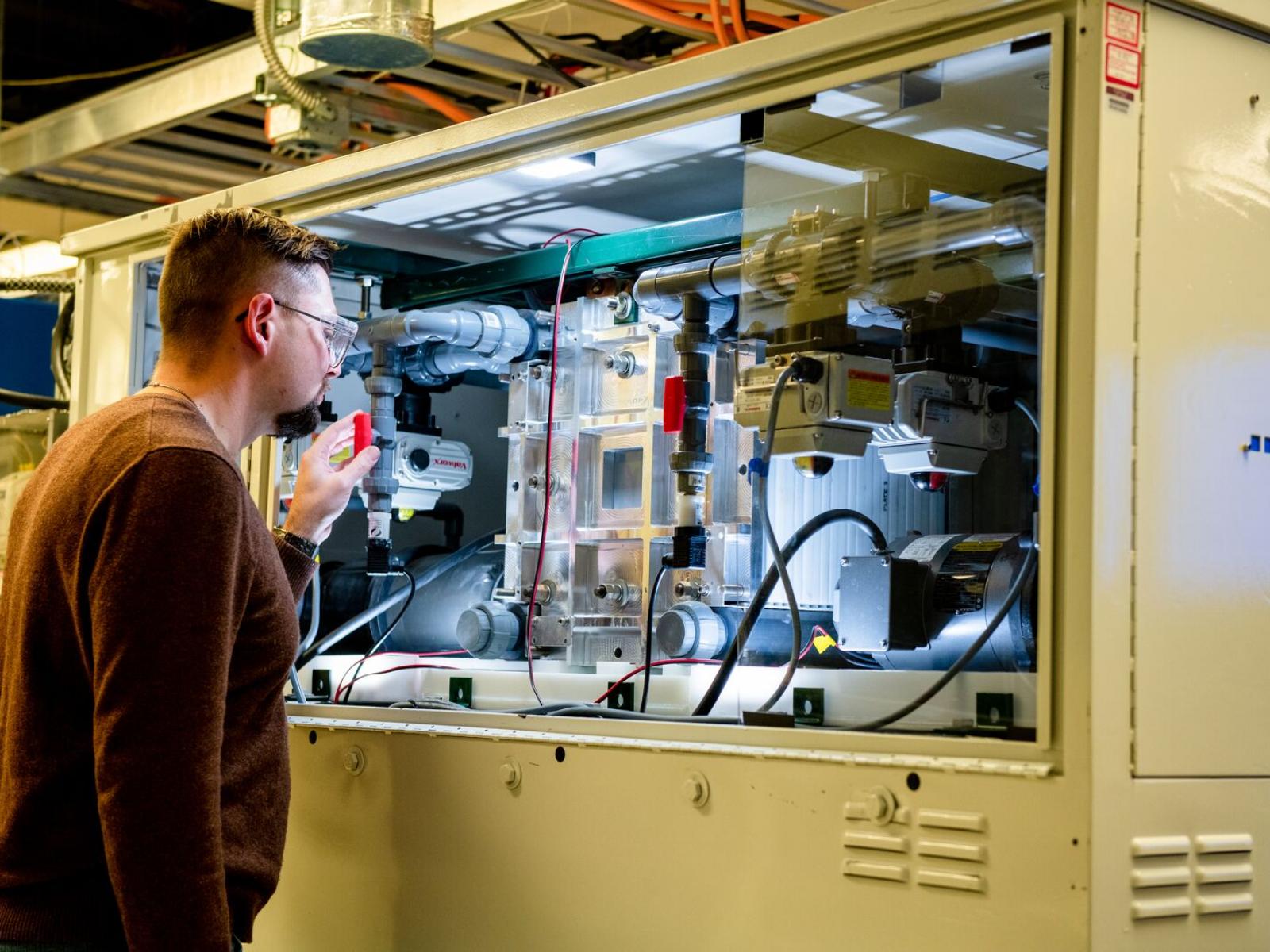
Matthew Fayette examines a vanadium flow battery stack, developed by ITN Energy Systems, in the Battery Reliability Test Laboratory at PNNL. The technology uses a vanadium bi-additive electrolyte developed at PNNL.
(Photo by Andrea Starr | Pacific Northwest National Laboratory)
The Battery Reliability Test Laboratory is part of the world class battery development capability at Pacific Northwest National Laboratory (PNNL). The Battery Reliability Test Laboratory was established to accelerate the development of grid energy storage technologies that will help modernize the power grid. PNNL battery experts develop the evaluation tools, materials, and system designs to test emerging or existing battery technologies that support grid-scale energy storage. Grid-scale batteries are key to making our nation’s power grid more resilient, reliable, secure, and flexible.
The Battery Reliability Test Laboratory was established to provide operation guidelines to end users to maximize battery lifetime and to predict lifetime of battery components by understanding degradation mechanisms.
Researchers at the Battery Reliability Test Laboratory work with a variety of battery designers, manufacturers, utilities, and systems integrators to perform tests that examine battery operating conditions, lifetimes, and performance through on-site characterization.
The Battery Reliability Test Laboratory is equipped to safely test single cells and modules for all existing and emerging battery technologies including:
- Lithium-ion
- Flow batteries
- Lead-acid
- Sodium-metal halide
- Nickel-iron
- Nickel-zinc
- Sodium-ion
The laboratory can test all types of battery modules, under various grid duty cycles, for sizes up to 10 kW.
In addition, PNNL is home to several highly specialized characterization techniques that can help to correlate a material’s microstructure to its performance or degradation during testing. These include Nuclear Magnetic Resonance (NMR) and X-ray Photoelectron Spectroscopy (XPS), Transmission Electron Microscopy (TEM), in-situ XRD, and Atom Probe Tomography (ATM).
The Battery Reliability Test Laboratory is continuously expanding to meet the demands of the stationary energy storage industry and provide testing of field deployed battery systems to validate component performance.

X-ray Diffractometer
(Photo by Andrea Starr | PNNL)
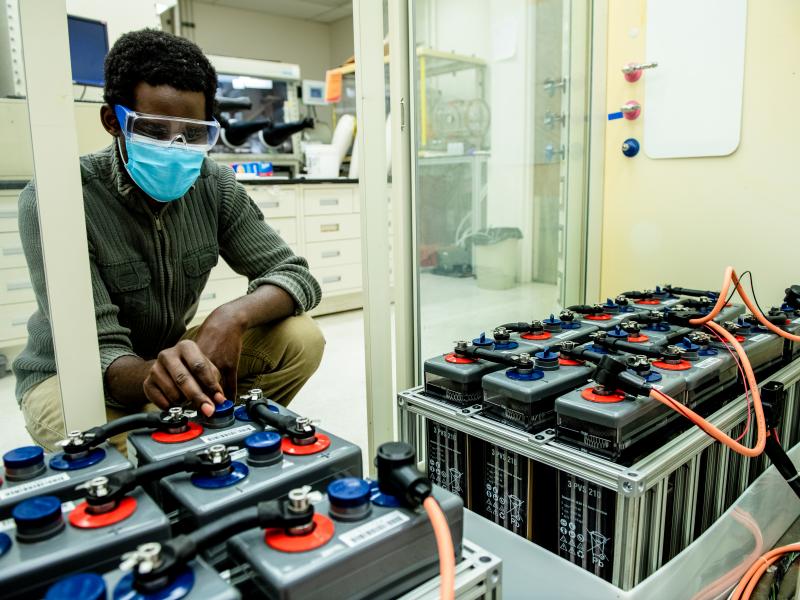
Lead acid batteries
(Photo by Andrea Starr | PNNL)
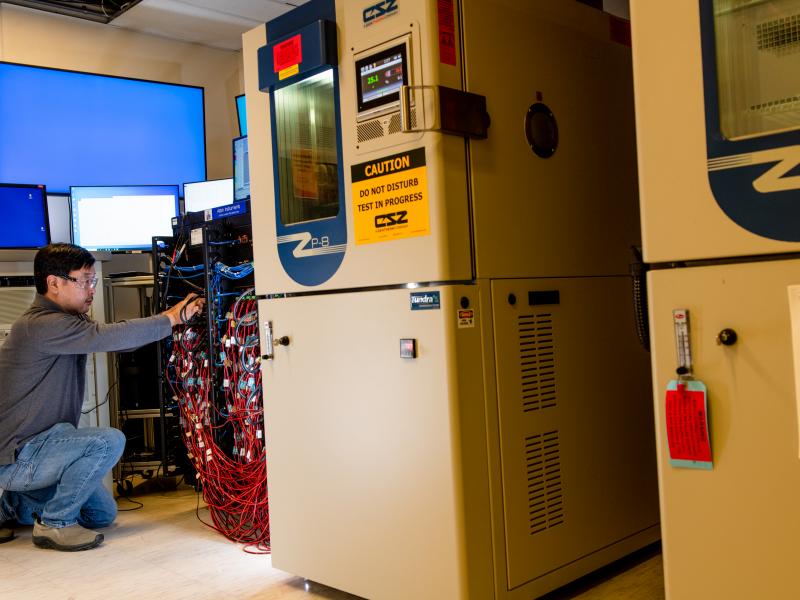
Lithium-ion battery test station
(Photo by Andrea Starr | PNNL)
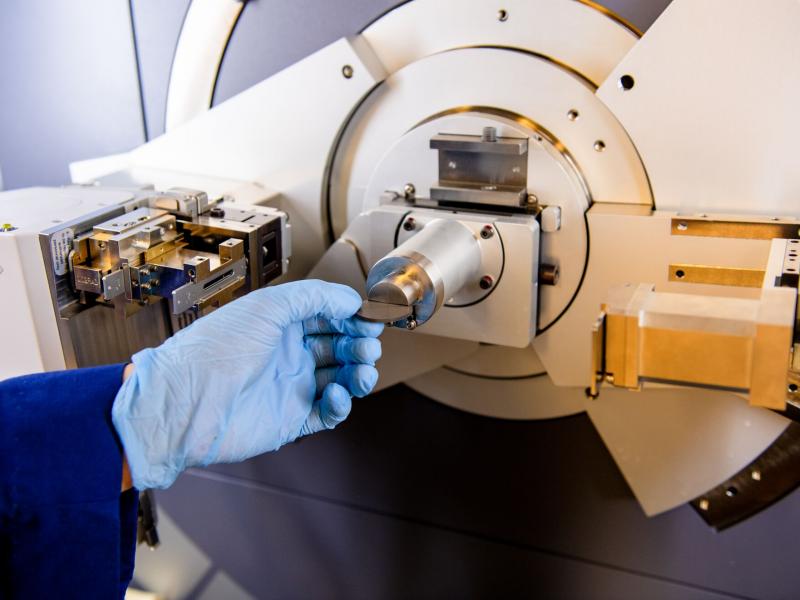
XRD battery testing
(Photo by Andrea Starr | PNNL)
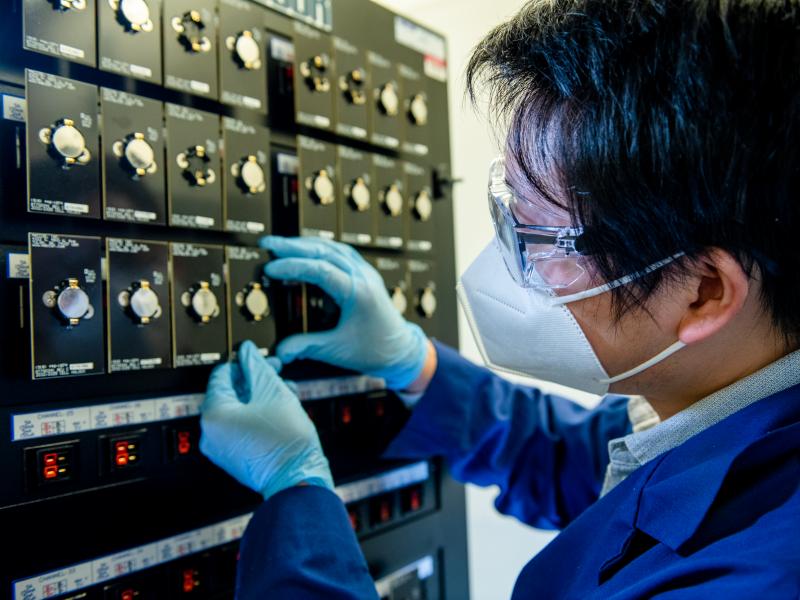
Maccor Battery Tester
(Photo by Andrea Starr | PNNL)
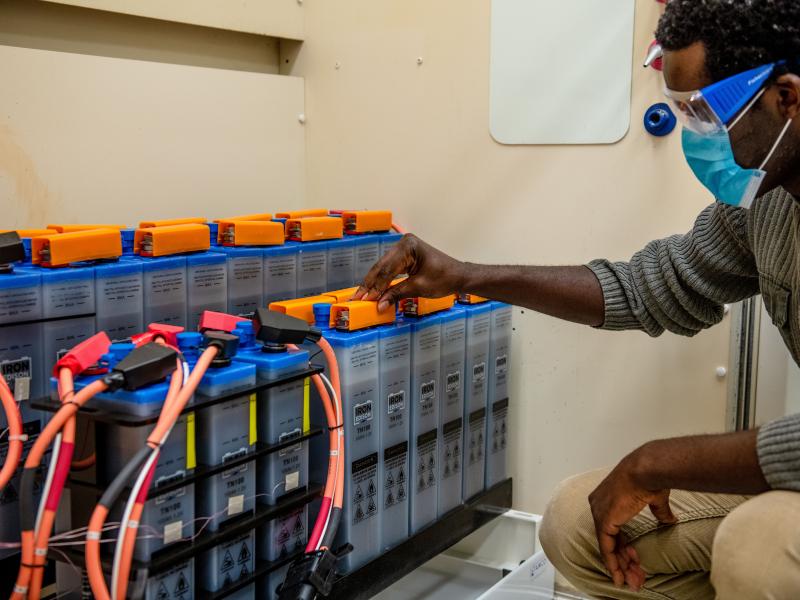
Iron-nickel batteries
(Photo by Andrea Starr | PNNL)